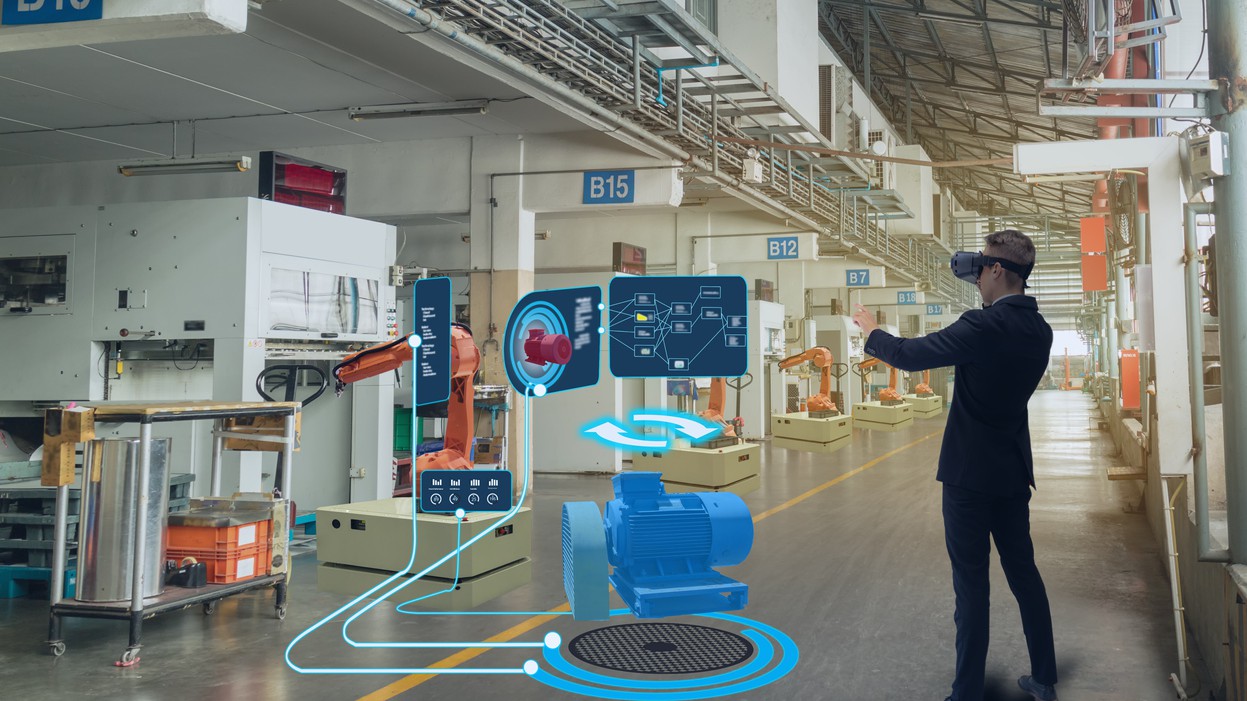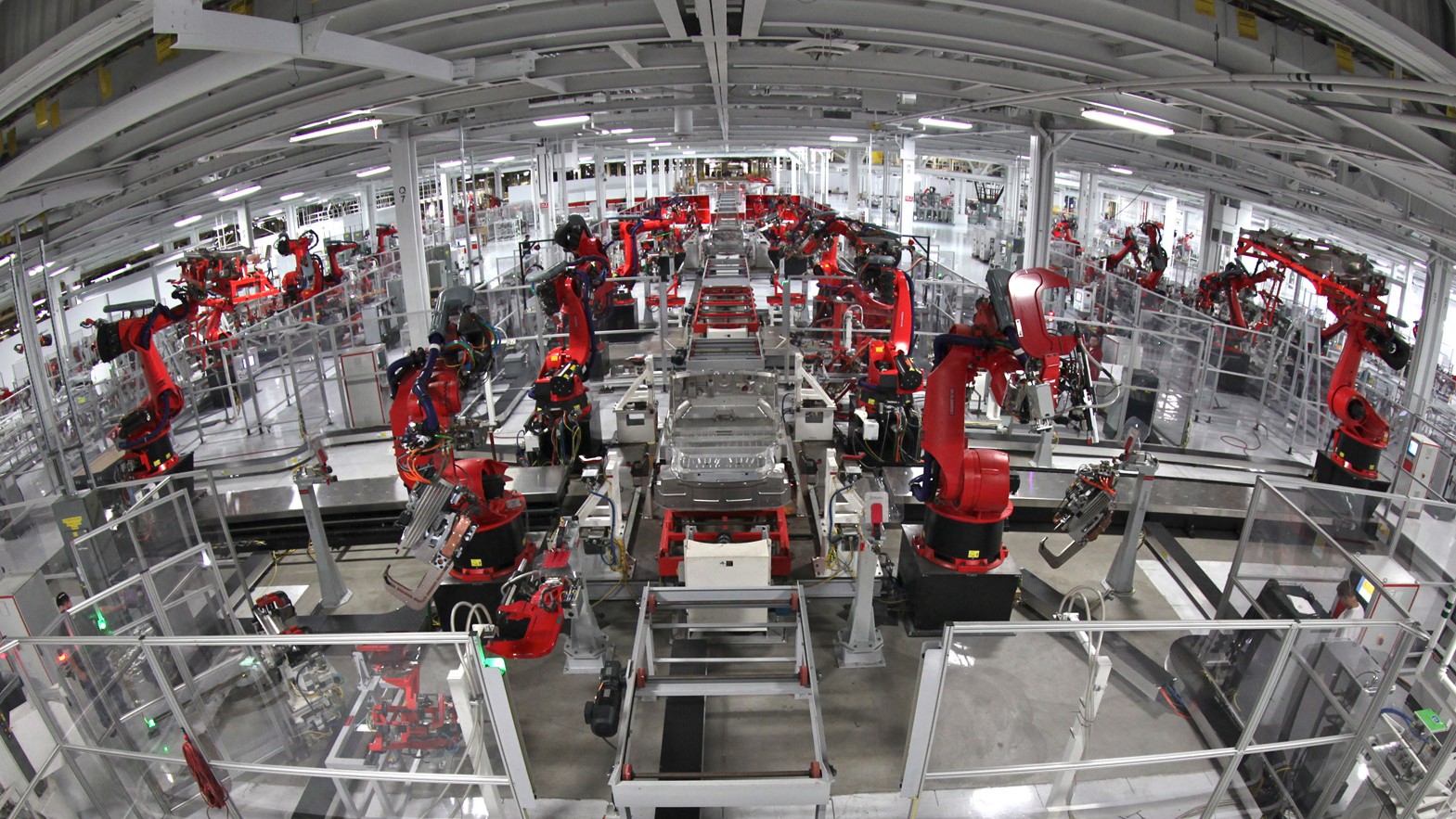A revolution is underway in the industrial sector. Smart factories – automated facilities aimed at eliminating human error – are replacing their more traditional counterparts and expanding rapidly in the process. A recent article in Forbes estimates that they will add $500 billion or more to the global economy by 2022. They’re the wave of the future, and they are here to stay.
There’s always been a certain amount of automation in modern factories. But older systems were limited to machines that could perform just a single task, such as connecting a bolt or releasing a valve. The advent of smarter industrial computers with more processing power allows for increasingly complex automated functions. The machinery is able to improve its efficiency over time and self-optimize to maximize the physical production of goods.
As a result, smart factories can reduce production costs by lowering or eliminating the need for human oversight. Because the system can make automatic changes, there’s much less risk of error. And with lowered costs and increased efficiency comes a higher quality product that the customer can purchase for less. Smart factories are also safer, since humans don’t need to stay in close proximity of potentially dangerous components or materials.
As you may have guessed, good industrial PCs play a huge role in smart factory operation, which brings us to another interesting stat from Forbes. As of July, 2017, some 76% of manufacturers either had a smart factory in operation or were in the process of developing one. Yet only 14% of companies reported being satisfied with the level of accomplishment. Clearly, there’s a lot of room for improvement… and with a smart factory’s potential to elevate profits, lower the cost of production and keep customers happy, a quality rugged mini computer may be the perfect way to do so.
Industrial Computers Have the Answer
Computers with rugged design and certified protection against dust and liquids are absolutely essential for any factory setting. Depending on the product being created, humid conditions, dry conditions, dust in the air, vibrations, and even bumps or drops are quite common. Any PC in that environment needs to stand up to harsh conditions, while still performing its job and coordinating the various aspects of the smart system.
That means more than just a strong chassis. For instance, fans used to cool the system might not be possible in a factory setting, since fans entail moving parts and can spread dust that might shut a system down. A rugged fanless PC not only reduces the number of moving parts by cooling the system through heat sinks and similar processes, but allows for a sealed system that can better repel contaminants.
In particular, look for industrial mini PCs with IP64 certification or higher: tested against dust and resistant to splashed liquids. Depending upon the specifics of the business, an industrial-grade touch screen may be in order too: allowing human supervisors to quickly interface with the system and make adjustments as necessary. Resistive screens, which react to pressure rather than the bioelectrical pulses of the human body, can be used while wearing gloves: another feature that may be absolutely necessary for a given factory setting.
Connectivity Options are a Must
Smart factories work because of the interconnectivity of their components. But the benefits extend into other areas. Interconnectivity allows different components within the factory to communicate with each other, as well as connecting different factories in different locations to work in conjunction together. Previous separate steps in the production process – design, planning, production, delivery and the like – can function cohesively, fully automated and working in conjunction with each other.
For example, smart cameras and other visual sensors can monitor the assembly line, which allow problems to be spotted early and corrected before they slow down production. Those, in turn, can be linked to human-machine interface (HMI) equipment on the production line instead of being routed back to some distant control room. That lets you address problems earlier in the process and respond swiftly when issues arise.
None of this works, however, unless the different machines in your factory can communicate with each other. WiFi range can be a problem in a sprawling manufacturing plant. Industrial computers can be customized to include 3G/4G LTE broadband connections, WiFi or even have multiple LAN ports to connect control panel PCs to both the internet and an intranet. Industrial tablets make an excellent option for smart factories as well. They can be carried from station to station, allowing managers to monitor production from anywhere while staying connected to every aspect of the operation.
RFID Tech Improving Quality Control
Quality control is of paramount importance in any industrial setting, and remains one of the most vital issues a smart factory setting needs to address. Automated quality control can be problematic without the right equipment, costing a great deal in lost production and time. Industrial computers with the proper components can be used to streamline the process and prevent any issue related to quality control from cropping up.
For example, say a smart factory is manufacturing automobiles, which may have specific and unique components added during production. RFID (radio frequency identification) technology can be placed at a specific station to ID vehicles moving on the production line, then determine which features and components need to be added to them. A barcode scanner can be used to check the parts before they are put in, and touchscreen technology allows workers to monitor and access the correct information. Systems with integrated features such as these can stand up to the conditions in such a setting while allowing for sterling quality control.
If your operation has a smart factory or you’re studying the potential of setting up such an operation, Cybernet has a line of industrial computers that are certified and tested for such environments. Contact us today to find out more.
Smart Factories and Their Use of Industrial Computers
March 9, 2021
With the advent of Industry 4.0, traditional factories are becoming obsolete. Though factories are no stranger to automation, advancements in industrial computers, artificial intelligence, IoT (Internet of Things),…
0 Comments11 Minutes
The Role of Industrial Computers in Industrial Automation
July 2, 2020
Industrial automation, as the name suggests, refers to using industrial computers in order to automate industrial processes. It may be understood as an umbrella term for computer automation of design, manufacturing and…
0 Comments9 Minutes
You Can't
Learn from a Pop-up
But we can deliver knowledge to your inbox!
We dive deep in the industry looking for new trends, technology, news, and updates. We're happy to share them with you.
Knowledge, News, and Industry Updates Right in Your Inbox




